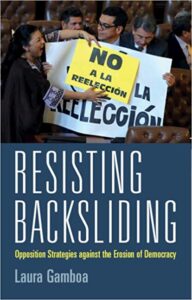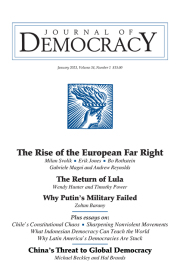Terms like “democratic recession” and “backsliding” are misleading and breed fatalism, diverting attention from potential paths out of the new authoritarianism, says a leading analyst.
like “democratic recession” and “backsliding” are misleading and breed fatalism, diverting attention from potential paths out of the new authoritarianism, says a leading analyst.
Authoritarians have now shown that they, too, can adapt, learning from their own mistakes, those of their antecedents, and their peers, argues Princeton University’s Jan-Werner Mueller, the author of Populism and Democracy Rules.
In fact, modern autocrats have devised a new playbook for consolidating, exercising, and maintaining power – one that depends significantly on keeping some trappings of democracy. As the social scientists Sergei Guriev and Daniel Treisman have shown, these so-called spin dictators are a far cry from the violent or even genocidal “fear dictators” who dominated the twentieth century, he writes for Project Syndicate:
 “Backsliding” also suggests that the current democratic recession is a linear process. As Seán Hanley and Licia Cianetti observe [in the Journal of Democracy], this “risks reproducing, in reverse, the intellectual constraints of the transition paradigm of the 1990s.”…
“Backsliding” also suggests that the current democratic recession is a linear process. As Seán Hanley and Licia Cianetti observe [in the Journal of Democracy], this “risks reproducing, in reverse, the intellectual constraints of the transition paradigm of the 1990s.”…
If we assume that democracies are on a linear, practically inescapable, path back to old-style authoritarianism, we will fail to give adequate thought to potential paths out of the new authoritarianism.
To preserve, restore, or promote democracy globally, we need careful analyses of individual cases, not just broad assumptions about “global trends,” Mueller concludes. RTWT







